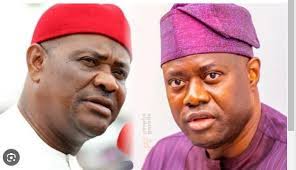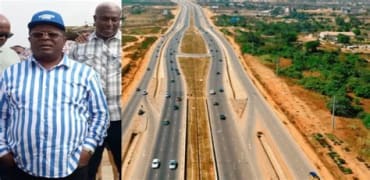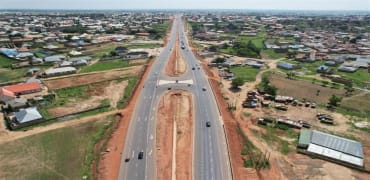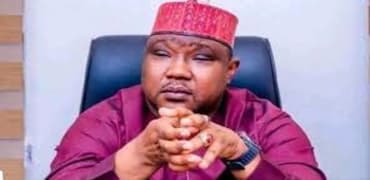PDP at the Crossroads: Wike, Makinde, and the Battle for Nigeria’s Main Opposition
PDP at the Crossroads: Wike, Makinde, and the Battle for Nigeria’s Main Opposition
Nigeria’s oldest surviving political party, the Peoples Democratic Party (PDP), once prided itself as the “largest party in Africa.” Today, it is fighting for survival. The party that held power for 16 unbroken years is now gripped by bitter internal rivalries, competing egos, and unresolved questions of leadership.
On Monday, August 25, 2025, the PDP will hold its 102nd National Executive Committee (NEC) meeting in Abuja. For party loyalists, the gathering is not just another routine meeting — it is a make-or-break moment that will determine whether the PDP reemerges as a credible opposition or sinks further into irrelevance ahead of the 2027 general election.
The Stakes: Zoning, Survival, or Capitulation?
At the heart of Monday’s agenda is the explosive issue of zoning the 2027 presidential ticket. Three options dominate the debate:
Zoning the ticket to the South, in recognition of rotational equity.
Throwing it open to all regions.
Zoning it to the North, a move many say will deepen the PDP’s crisis.
A fourth option, whispered in some circles, is perhaps the most controversial: quietly aligning with President Bola Tinubu’s re-election bid under the APC. For many PDP stalwarts, that would be nothing short of political suicide.
Yet, even as the zoning debate rages, the real storm lies in the personal and political clash between two heavyweights: FCT Minister Nyesom Wike and Oyo State Governor Seyi Makinde. Their contrasting visions for the party encapsulate the PDP’s crisis of identity — is it a serious opposition party or a fractured coalition of personal empires?
From the G-5 Revolt to Today’s Feud
The roots of the crisis trace back to 2023, when the G-5 Governors — Wike, Makinde, Samuel Ortom, Okezie Ikpeazu, and Ifeanyi Ugwuanyi — revolted against the party’s presidential candidate, Atiku Abubakar, over the refusal to zone the ticket to the South. Their rebellion, which culminated in quiet support for Bola Tinubu, helped hand the APC victory and left the PDP in tatters.
Two years later, the fallout remains raw. Wike, now seated at the heart of Tinubu’s government as Minister of the FCT, openly backs the President’s 2027 bid. Former Jigawa Governor Sule Lamido and other party elders have demanded his expulsion, calling his defiance the height of betrayal.
Makinde, on the other hand, is positioning himself as a reformer. He preaches transparency, inclusivity, and rebuilding trust — but his efforts have put him on a collision course with Wike’s loyalists, especially in the South-South.
The Zoning Chessboard
Recent attempts at consensus only deepened the rift. At a zoning consultative meeting in Lagos chaired by Bayelsa Governor Douye Diri, Makinde, Osun’s Ademola Adeleke, and BoT Chairman Adolphus Wabara pushed for inclusive sharing of the PDP’s 19 National Working Committee (NWC) positions.
Wike’s loyalists boycotted the meeting, denouncing its resolutions as illegitimate — their main grievance being the sidelining of Chief Dan Orbih, whom they insist must remain South-South Vice Chairman.
The boycott underscored a bigger question: is the PDP zoning positions to build consensus or to consolidate fiefdoms?
Discipline or Indiscipline?
The PDP is also paralyzed by its inability to enforce discipline. In Ogun, state chairman Abayomi Tella openly endorsed Tinubu’s 2027 re-election bid without facing sanctions. Wike continues to attend APC-aligned functions while commanding loyalty within PDP ranks.
Party leaders fear that disciplining these figures may trigger mass defections and cripple the party ahead of its November elective convention in Ibadan. Yet, doing nothing risks branding the PDP as weak and unserious.
As one elder put it, “The PDP must decide whether it wants to be a party of rules or a club of convenience.”
Monday’s NEC: A Test of Nerves
The NEC is expected to ratify the zoning formula, finalize preparations for the Ibadan convention, and debate sanctions for erring members. Behind closed doors, PDP governors are already huddling in Zamfara, while the National Caucus meets on Sunday to soften tensions. Even the Board of Trustees is convening before the NEC — a rare sign of how critical the stakes are.
Insiders say Monday could produce one of three outcomes:
Consensus & Unity: If governors and elders rally behind Makinde’s call for inclusivity, the PDP may present a united face.
Implosion: If Wike and his bloc refuse compromise, the NEC could collapse into open confrontation.
Status Quo: The party may once again paper over the cracks, delaying but not resolving the crisis.
A Party in Intensive Care
Former Benue Governor Gabriel Suswam recently likened the PDP to being in the “Intensive Care Unit”, warning that unless urgent reforms are embraced, the party may not survive to 2027.
The coming weeks will prove decisive. The NEC on Monday and the convention in November are more than procedural gatherings — they are existential battles. For the PDP, the question is simple yet profound: Can it govern itself before it dares to govern Nigeria again?
If Monday ends in unity, the PDP may yet rebuild its image as a credible opposition. But if the NEC collapses into rancour, the once-mighty party may finally write itself out of Nigeria’s political future.
By Haruna Yakubu Haruna

















